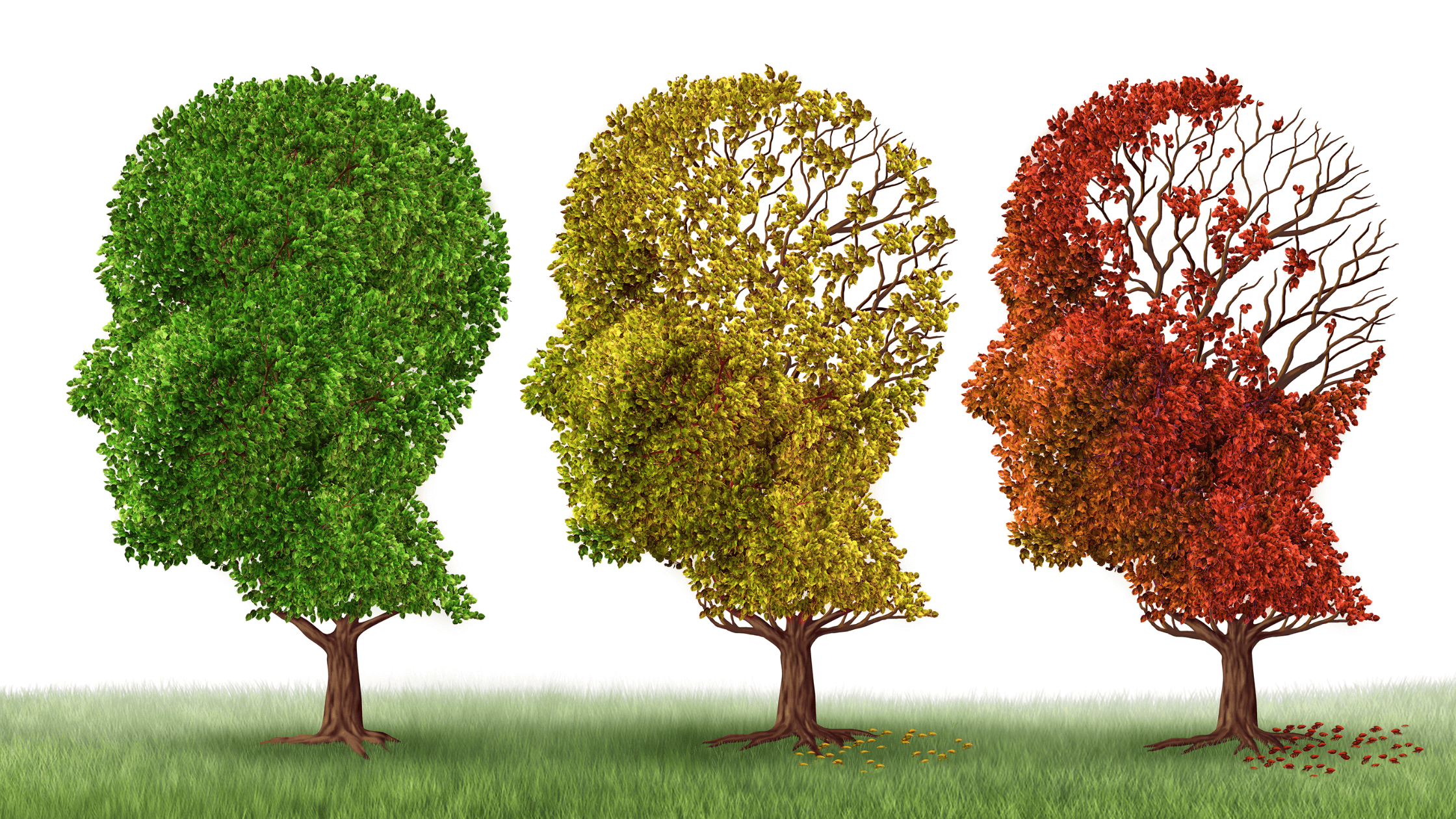It’s easy to notice physical signs of aging—wrinkles, grey hairs that seem to multiply overnight, and joints that don’t work quite as smoothly as they did before. Mental aging can be more challenging to spot, making it tougher to prevent. A recent study identified three factors that most accelerate brain aging: diabetes, air pollution, and alcohol intake. This research provides valuable insight into contributors to cognitive decline and how to support your brain health as you age by exercising, eating more fiber, reducing your alcohol intake, and investing in a good air purifier.
Quick look
- Researchers have identified a region of the brain uniquely vulnerable to aging and dementia.
- Diabetes, air pollution, and alcohol can accelerate brain aging in this region.
- Healthy habits like exercising and eating more fiber can reduce the risk of developing Type 2 Diabetes.
- Using an air purifier and reducing alcohol intake can protect your brain.
Top 3 factors that accelerate brain aging

Researchers from the University of Oxford identified an area of the brain that seems to degenerate earlier in old age. They discovered that this “weak spot” exhibited a unique vulnerability to brain aging and Alzheimer’s disease.
In a subsequent study conducted in March 2024, the same researchers used brain scans of over 40,000 UK participants to identify which modifiable factors had the most significant effect on brain aging because they effectively targeted this “weak spot.” They found that the top three factors contributing to faster and earlier degeneration are diabetes, air pollution, and alcohol.
1. Diabetes
There are two distinct types of diabetes: Type 1 and Type 2. Diabetes Type 1 is typically diagnosed in children and young adults and is not a result of diet or lifestyle factors.
Type 2 Diabetes, on the other hand, can have genetic components but typically develops in response to poor lifestyle habits, such as obesity and lack of exercise. Roughly 90% of diabetes cases are Type 2, and the disease is reversible with regular exercise and a healthy diet.
Type 2 Diabetes has been studied specifically for its link to brain disorders like Alzheimer’s Disease and dementia. Studies show Type 2 Diabetes is strongly associated with the development of Alzheimer’s Disease—in epidemiological studies, individuals with Type 2 Diabetes were more than twice as likely to develop the disease.
The link between type 2 diabetes and Alzheimer’s disease is becoming so strong that some researchers are now referring to the dementia disorder as “Type 3 Diabetes”.
For people in the construction field, diabetes is not uncommon. According to data from The Center for Construction Research and Training, roughly 8% of construction workers have been diagnosed with diabetes, and the percentage increased (18%) in those aged 55 years and older. Similarly, data from the American Heart Association suggests that 1 in 25 construction workers has diabetes.
2. Air pollution
We often associate air pollution with headaches or respiratory disorders, but research has also linked high levels of air pollution with increased dementia risk in adults. This effect was the strongest when the air pollution came from agriculture, traffic, coal combustion, and wildfires. Researchers pointed to nitrogen dioxide as the primary culprit contributing to air pollution’s harmful effects, which is of particular concern because HEPA filters don’t remove nitrogen dioxide.
People working in construction, architecture, and engineering are exposed to chemicals and toxic substances almost daily, leaving them significantly more susceptible than the general public.
3. Alcohol Intake
When you’re sipping an Aperol Spritz or chugging a cold beer, it can be easy to forget that you’re actually ingesting a potent toxin. The World Health Organization doesn’t mince words when describing alcohol’s effect on the human body, saying, “Alcohol is a toxic, psychoactive, and dependence-producing substance and has been classified as a Group 1 carcinogen…this is the highest risk group, which also includes asbestos, radiation, and tobacco.”
It perhaps shouldn’t be surprising, then, that researchers identified alcohol as one of the most significant risk factors for declining cognitive health. One study found that those who regularly drink alcohol are more likely to develop dementia, concluding that there is “no safe level of alcohol consumption for dementia.”
How to support healthy brain aging

By explicitly identifying the modifiable risk factors for developing dementia instead of genetic components beyond our control, researchers have given us a powerful blueprint to future-proof our brains. Here’s how to reduce your risk factors and safeguard your cognitive health well into your golden years.
Exercise
We’ve known for a while that exercise is as good for the brain as it is for the body. Studies show that physical activity can also be an effective tool for preventing—and even helping reverse—type 2 diabetes, one of the big three contributors to brain aging.
We’re not talking about spending hours in the gym, either. Research has shown that walking at a relaxed rate of two-and-a-half miles per hour can reduce the risk of developing Type 2 Diabetes by 15 percent, while speeding it up a little and walking at four miles per hour or faster can cut diabetes risks by 39 percent.
Eat more fiber
Women aged 31- 50 need 25 grams of fiber daily, while men aged 31-50 need 31 grams. Unfortunately, 95% of the population doesn’t meet these requirements. Eating more fiber can also help prevent Type 2 diabetes by creating a healthy gut biome.
Fiber comes in all shapes and sizes, but some of your best high-fiber options include:
- Beans and legumes
- Raspberries
- Blackberries
- Guava
- Pears
- Green peas
- Squash
- Artichokes
- Chia seeds
- Quinoa
- Barley
Invest in an air purifier
To combat the effects of air pollution, consider investing in a good air purifier, especially if you live in an area with agriculture, traffic, coal combustion, or wildfires. To get the most brian-boosting benefits, look for an air purifier that can remove nitrogen dioxide (NO2), the gas identified in the dementia study. HEPA filters are designed to filter small particulates; gasses like NO2 just slip right through. To filter NO2, look for an air purifier with a good carbon filter.
Cut back on alcohol (or cut it out entirely)
That third beer probably isn’t worth sacrificing your future cognitive health for. Reducing your alcohol intake or cutting out drinking altogether will go a long way towards staying mentally sharp well into your twilight years. The good news is that teetotallers have never been cooler. There are now dozens of non-alcoholic beers, wines, and cocktails on most grocery store shelves, and they taste so good that you might not even miss the alcohol (and you certainly won’t miss the hangover).
Bottom line
Your brain is your most valuable tool, and like any tool, it requires care and maintenance to function at its best. While aging is inevitable, research shows that diabetes, air pollution, and alcohol consumption accelerate cognitive decline. By making small, deliberate changes—such as exercising regularly, eating a fiber-rich diet, reducing alcohol intake, and improving air quality—you can take control of your brain health and reduce your risk of early cognitive decline.
Like this and want more content like it? Sign up for our newsletter and follow us on social media for more tips and advice about staying healthy under the hard hat!


